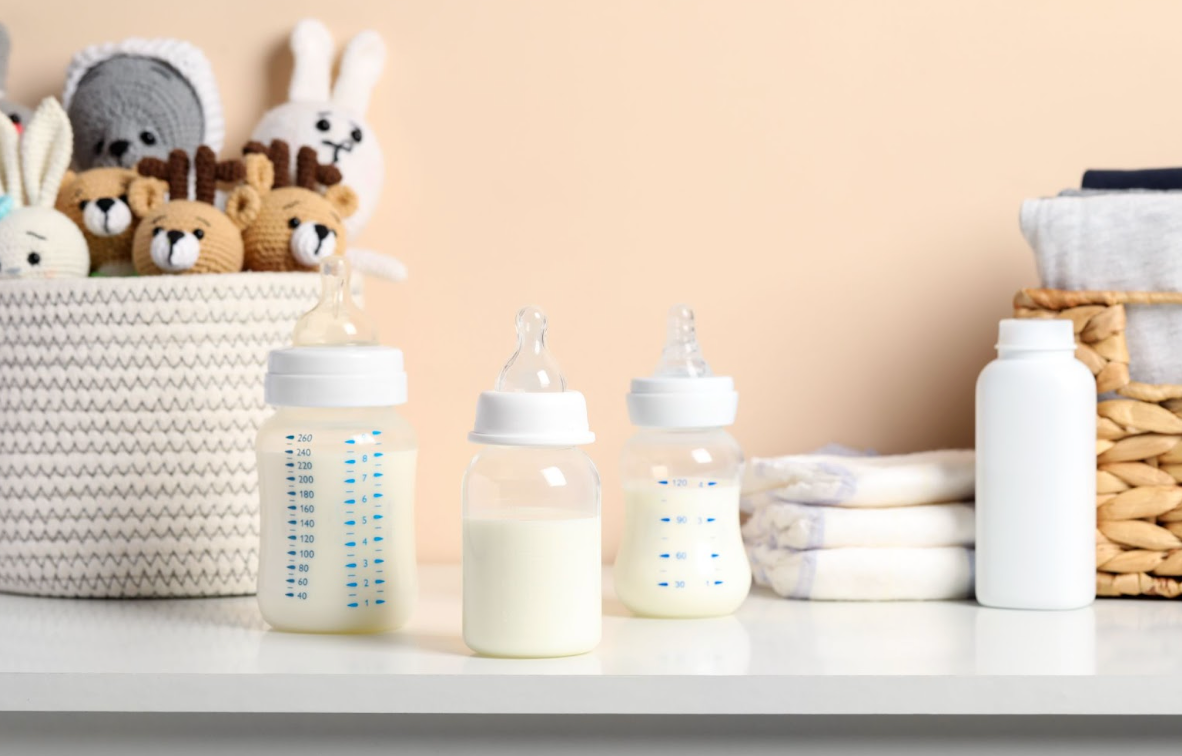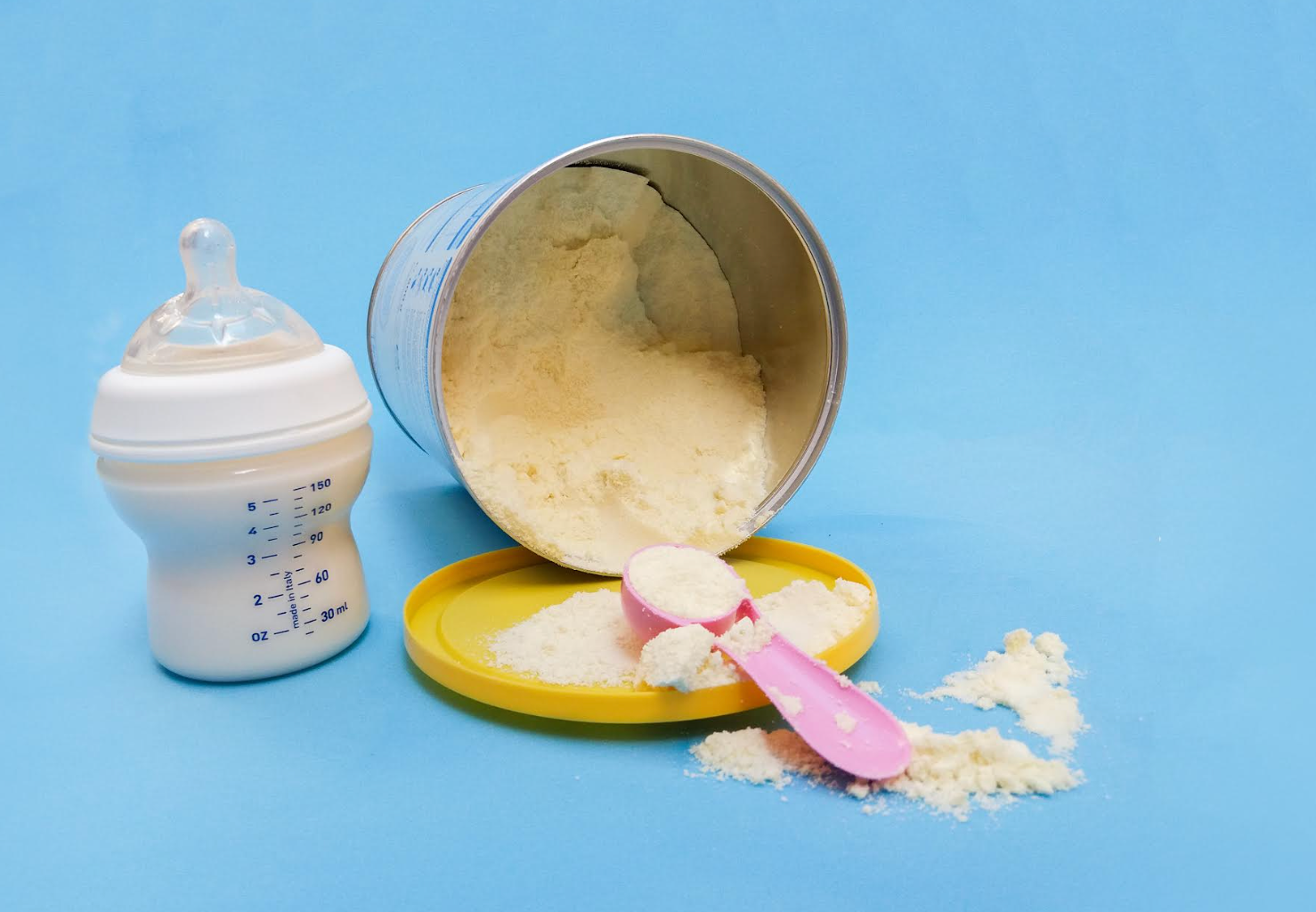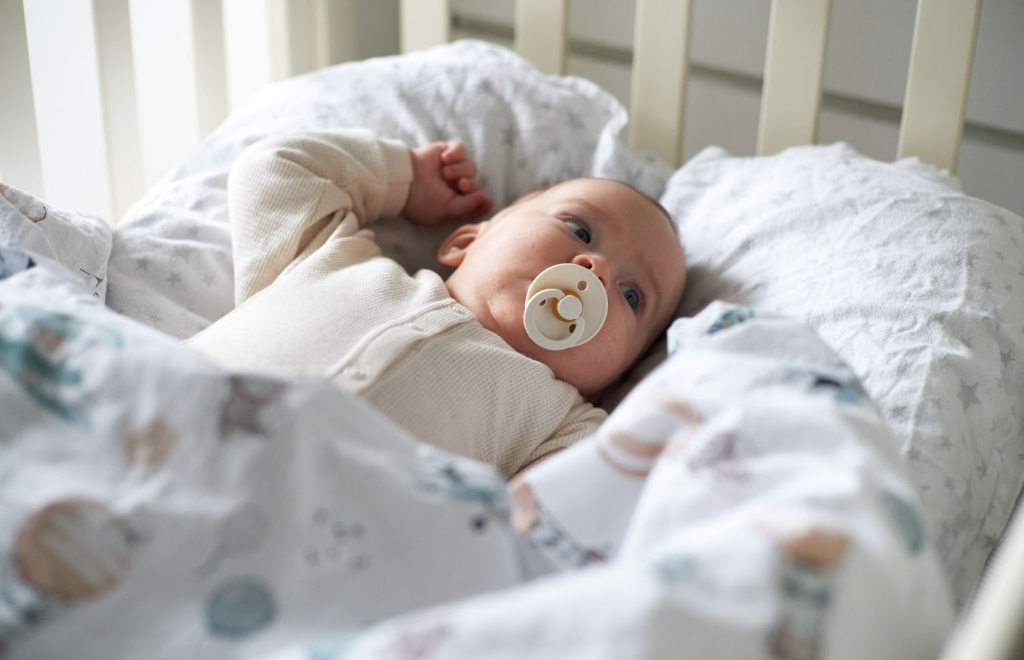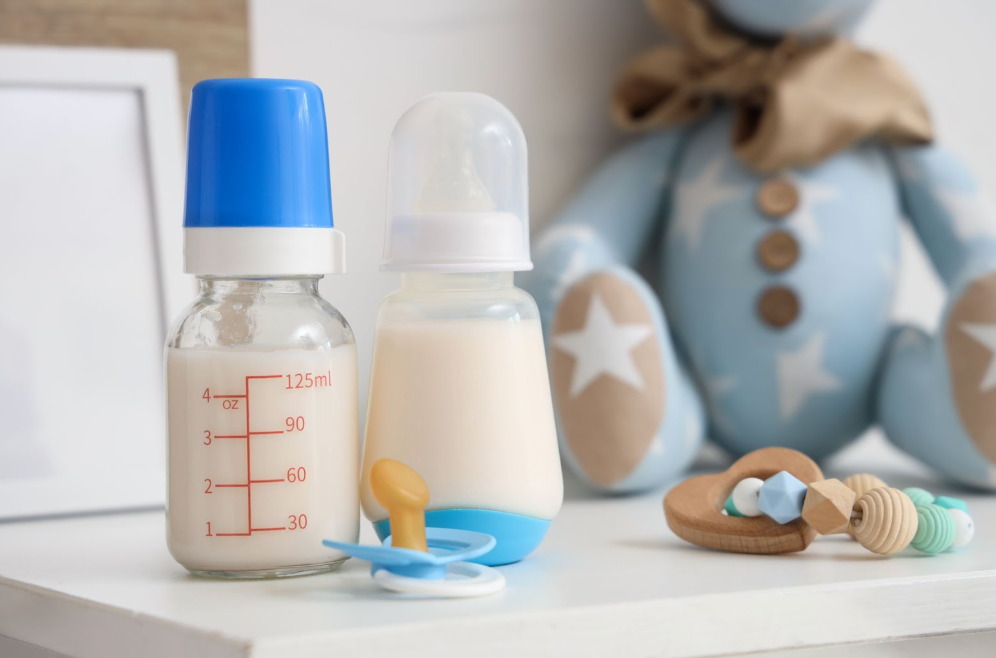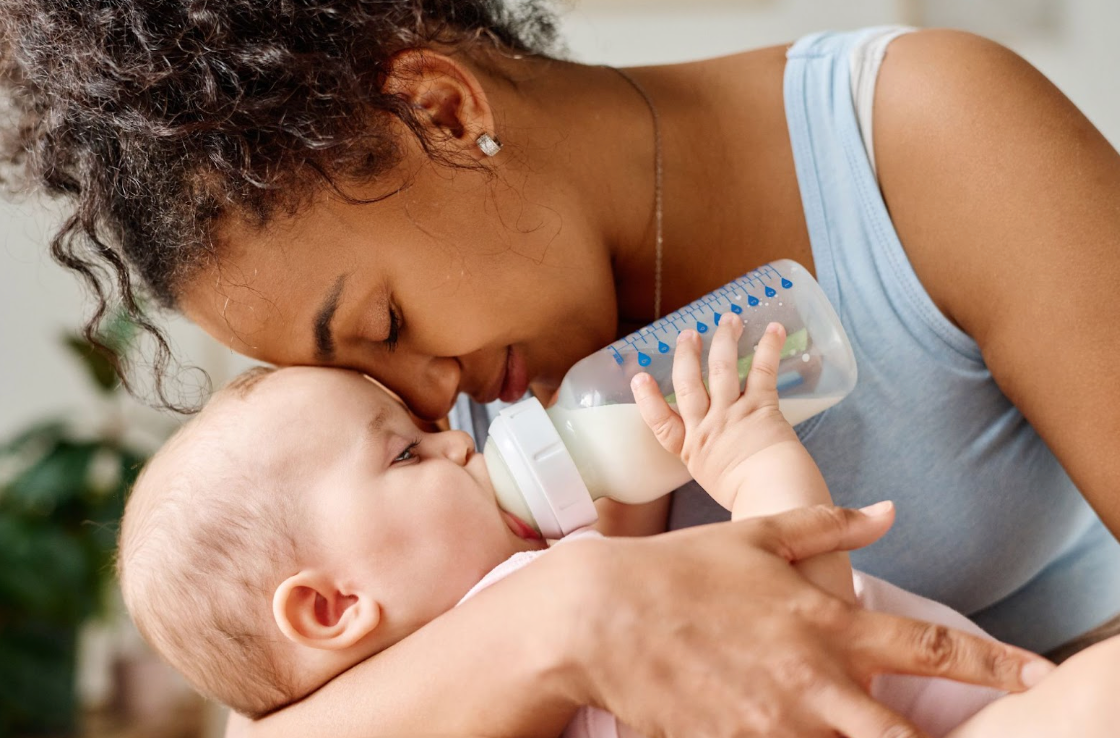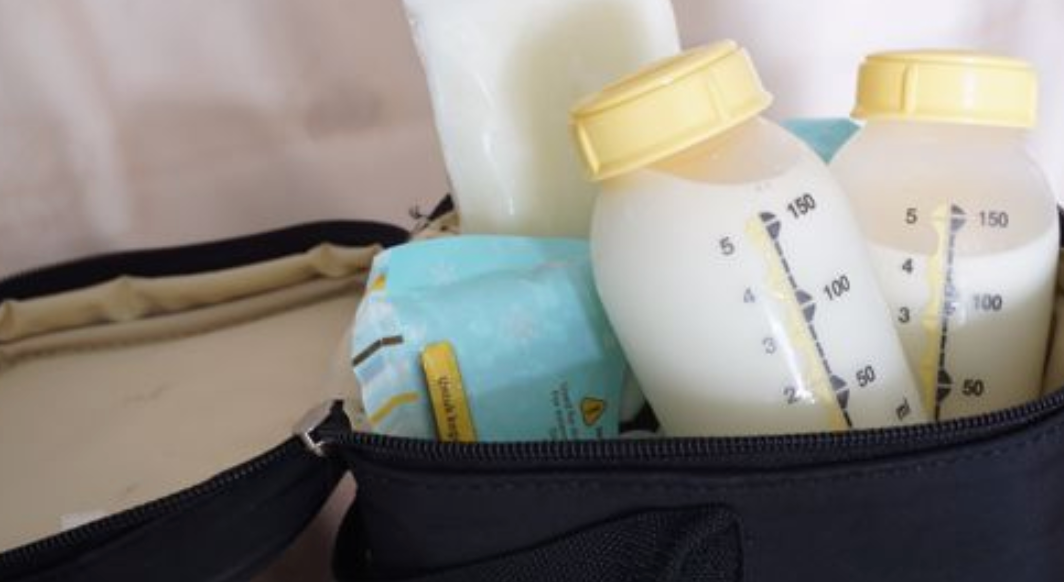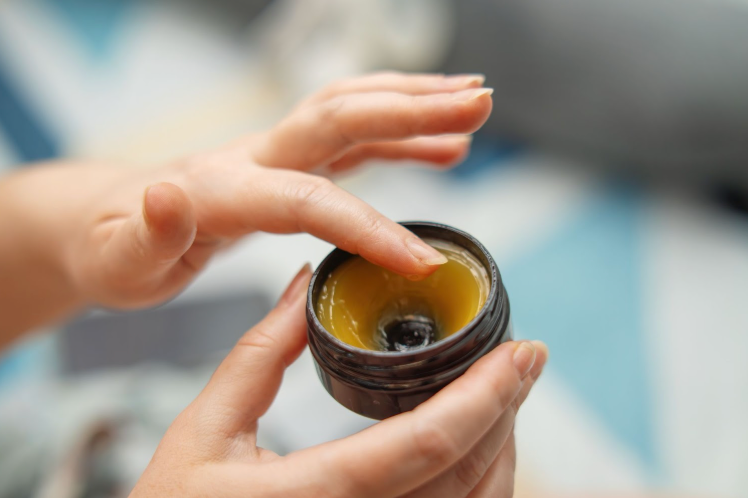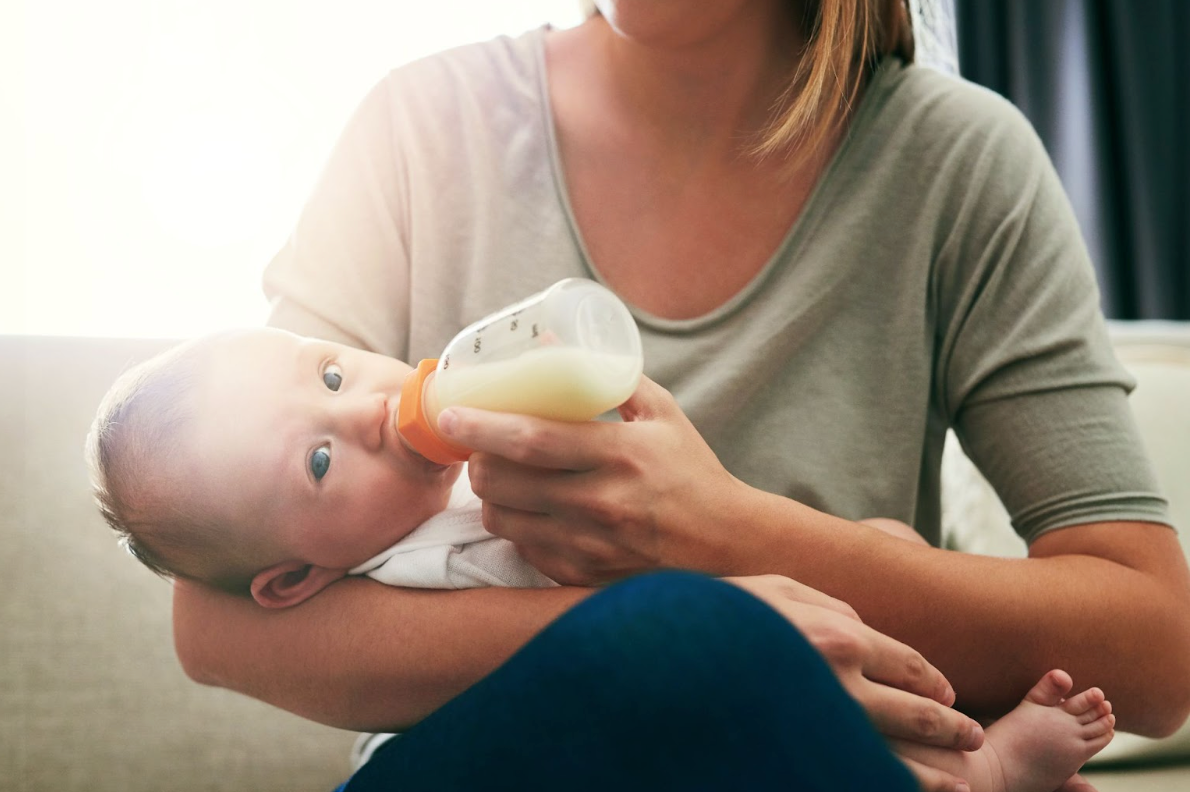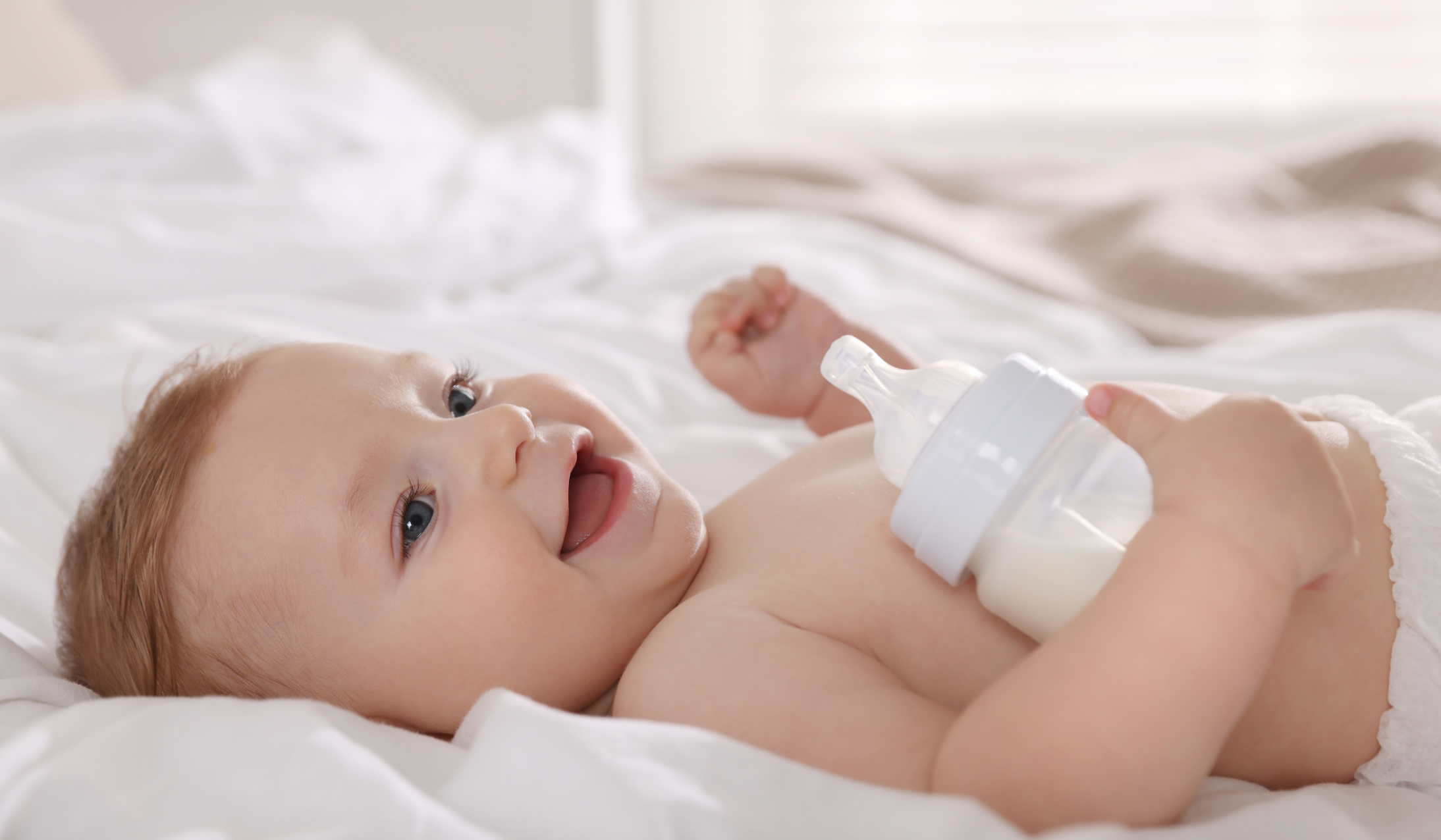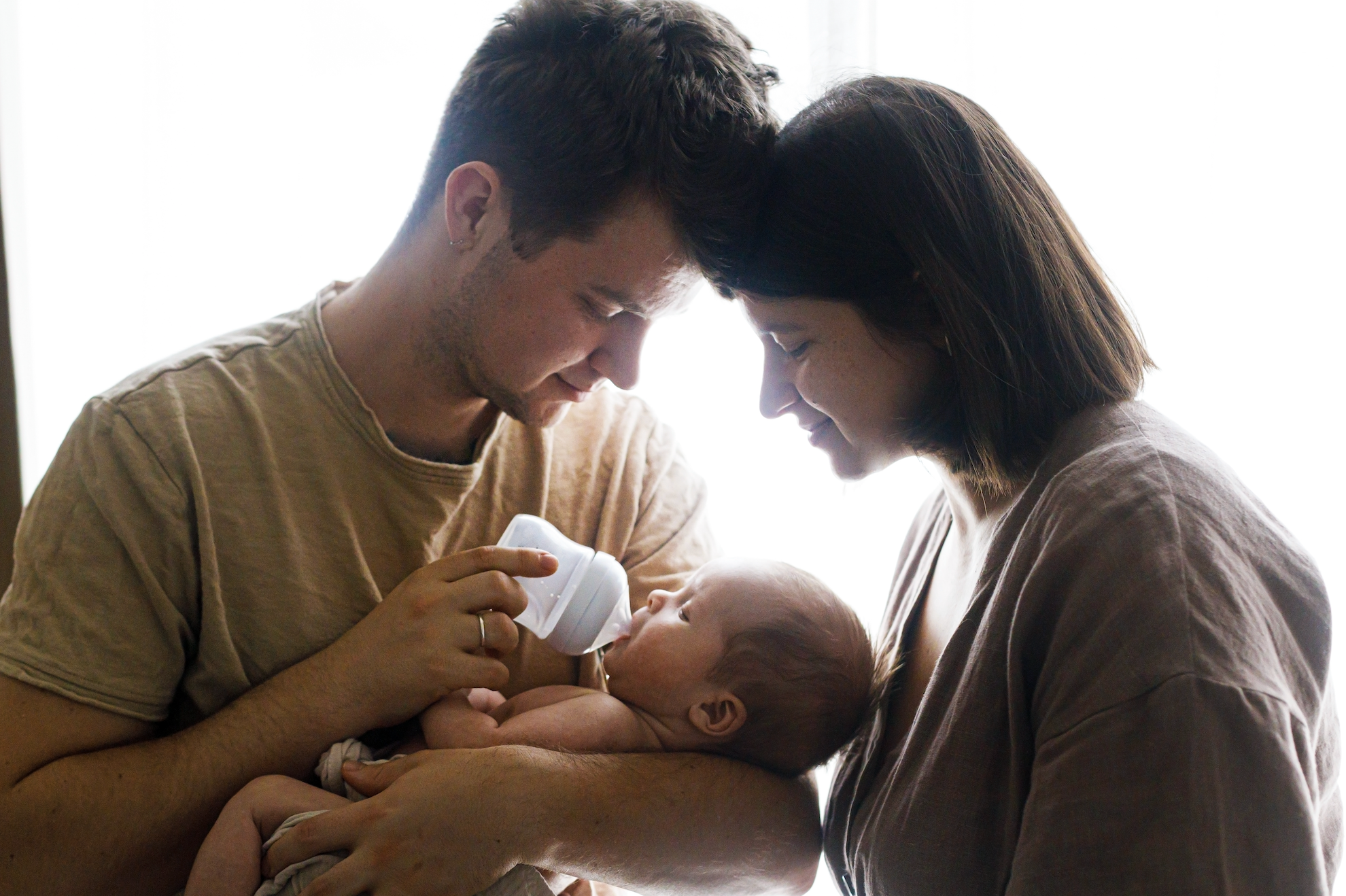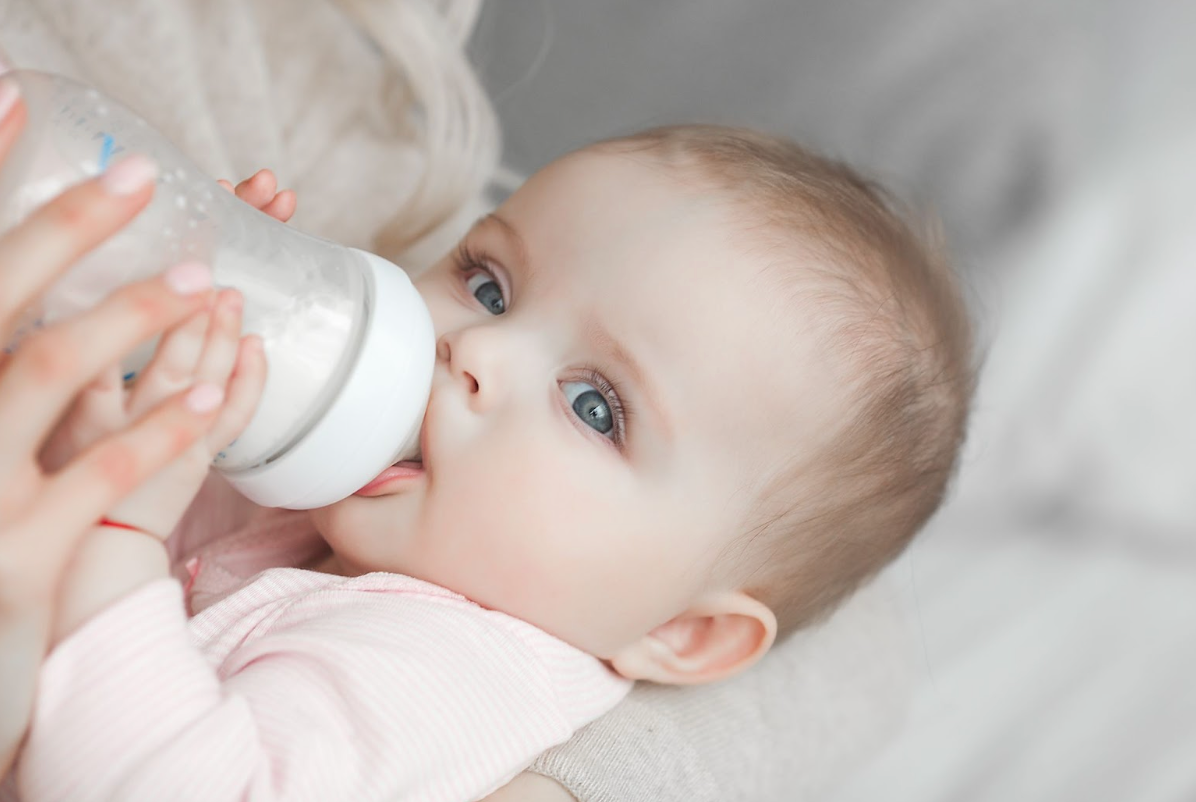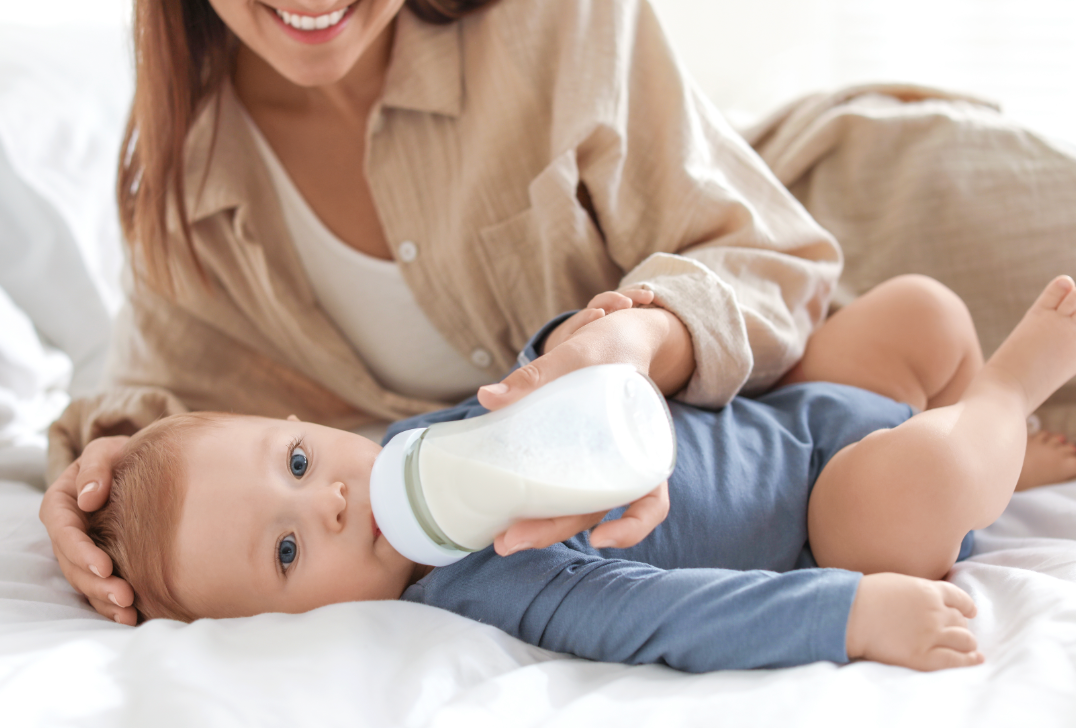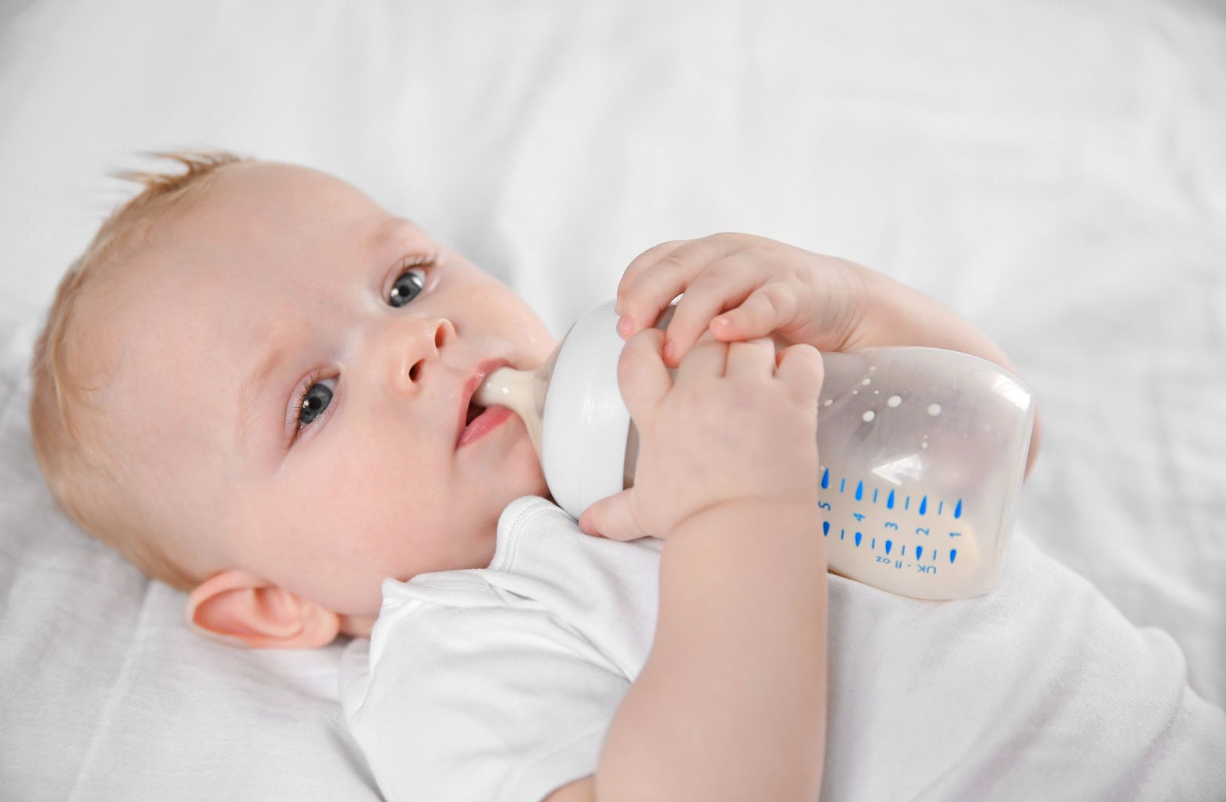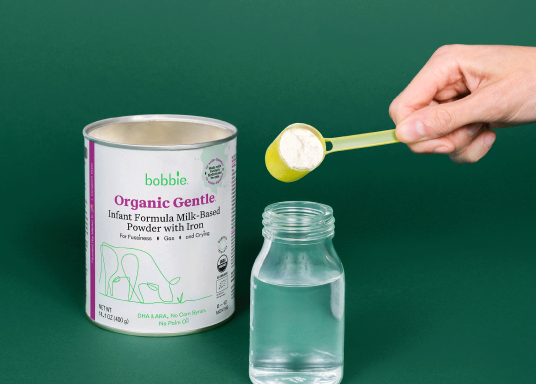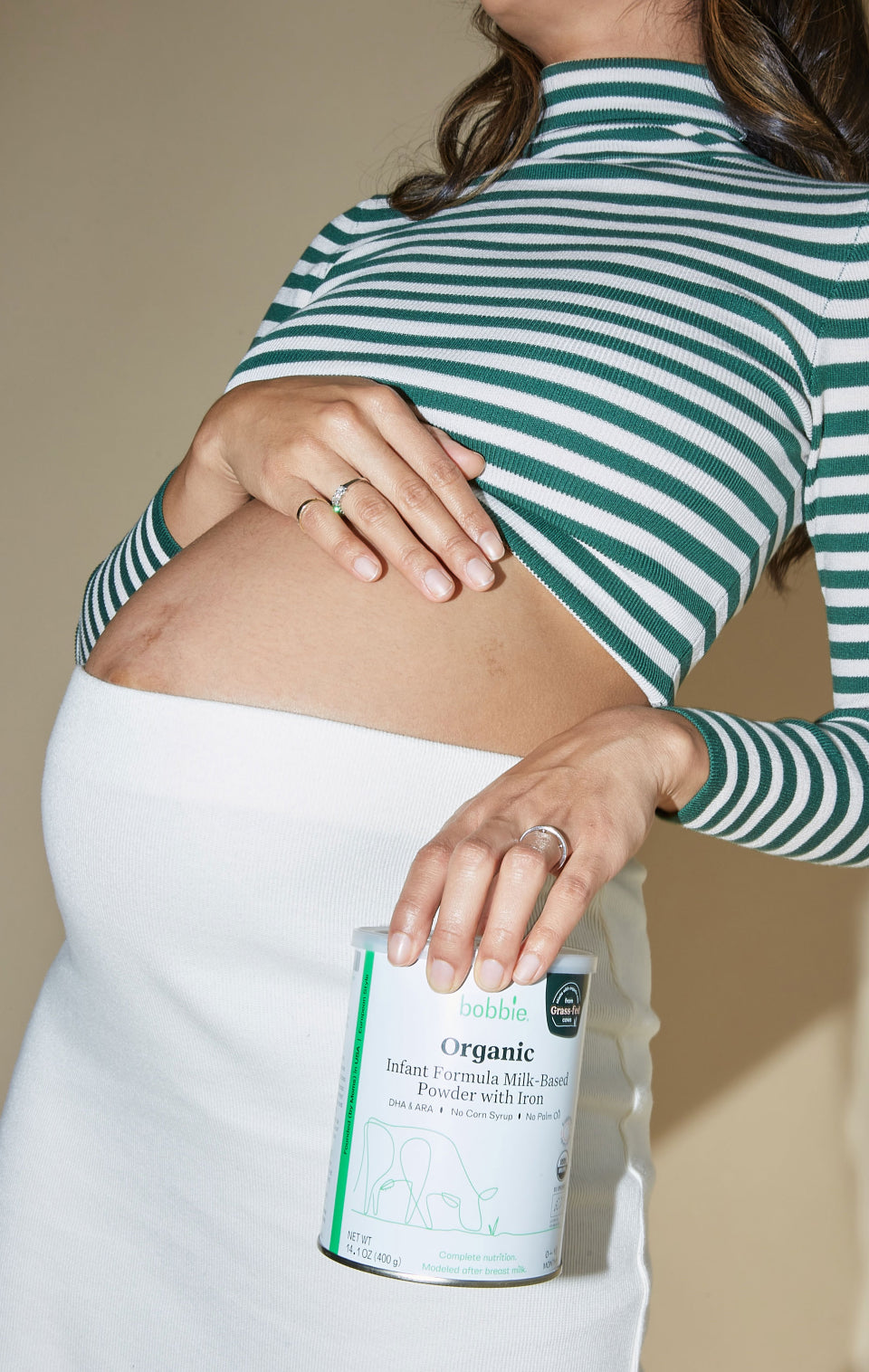Published June 27, 2025

How Bobbie Protects Against a Baby Formula Recall
Hearing the words “baby formula recall” is enough to send any parent’s heart racing. With recent headlines highlighting infant botulism (from Clostridium botulinum bacteria) and Cronobacter outbreaks, excess vitamin D, and contamination concerns, it’s no wonder families feel on edge. But take a deep breath — we’re here to help!
Let's break down what a recall really means, how to stay informed and protected, and how Bobbie was built to prioritize your baby’s safety.
What Is a Baby Formula Recall?
The FDA defines a food recall as the removal of a product from the market when it could pose a health or safety risk. There are three levels:
-
Class I: a serious health risk
-
Class II: temporary or reversible health effects
-
Class III: unlikely to cause harm but still not up to standard
While the FDA doesn’t "approve" infant formulas, manufacturers must notify the agency before selling them. The FDA reviews these notifications to ensure infant formulas meet strict nutrition, labeling, and safety standards — and can step in, if a product poses health risks.
When it comes to baby formula, the bar is high — and for good reason. Since it’s often a baby’s only source of nutrition, the FDA enforces strict rules to make sure every scoop is safe and nourishing.
What Does This Mean for Parents and Their Little Ones?
While recalls can be alarming for parents, they’re also a sign that the safety systems in place are doing their job — quickly identifying potential risks and acting to protect babies. Plus, a formula recall doesn’t necessarily mean the brand is unsafe overall — it means a possible issue was identified that requires swift action to ensure no baby is put at risk.
Why Do Baby Formulas Get Recalled?
Not all recalls are the same, and they can be either required or voluntary. What's the difference? A required recall happens when the FDA orders a company to remove a product from the market due to a confirmed safety risk. A voluntary recall, on the other hand, is initiated by the company itself — often out of an abundance of caution and sometimes with FDA’s strong recommendation — when they identify or are made aware of a potential issue and then act quickly to protect consumers.
Either way, the goal is the same: keeping your little one safe!
So, what are some of the most common reasons behind an infant formula recall?
-
Contamination concerns: Recalls often happen when harmful bacteria like Cronobacter, Clostridium botulinum (the bacterium that causes infant botulism), or Salmonella are found or a suggested link is discovered. Contamination can occur from from product itself, during manufacturing, or at home during bottle preparation. Contamination recalls also occur if there’s a chance of plastic, metal, or other foreign objects in the formula.
-
Nutrient imbalances: Formula has to deliver just the right mix of nutrients. Too much or too little of essentials like iron or vitamin D can lead to a recall to keep babies safe.
-
Packaging errors: Even small labeling slip-ups — like missing allergen info or a wrong expiration date — can trigger a recall if they create confusion or safety risks.
-
Manufacturing violations: If a facility doesn’t meet FDA cleanliness or safety standards, any formula made there may be recalled, even before issues show up in finished product lots or retail stores.
-
Improper selling: All formulas must go through proper FDA notification before sale. If a product skips that step, it can be pulled — even if it seems fine on the surface.
Major Baby Formula Recalls Timeline
In recent years, several baby formula recalls have made headlines. Here’s a quick rundown of the major recalls from 2022 to 2025 (FDA lists recall records for three years before archiving), what caused them, and how regulators responded:
Feb. 2022: Abbott Nutrition Recalls Similac, Alimentum and EleCare Products
Abbott Nutrition initiated a significant recall of its powdered infant formula options — including Similac, Alimentum and EleCare brands — after reports of Cronobacter infections in four infants who consumed formula from the same Abbott factory. The move led to a factory shutdown and intensified a nationwide formula shortage.
Dec. 2022: ByHeart Recalls Infant Formula
ByHeart voluntarily recalled a batch of formula after learning that a third-party packaging facility may have had Cronobacter contamination. No babies were harmed, and the company resumed sale of their formula post-recall.
Sep. 2023: Little Oak Recalls Goat Milk Formulas
Little Oak pulled its goat milk formulas from the U.S. after selling them without the FDA’s required review process. Even if the product seems safe, the lack of oversight raised red flags — so the FDA stepped in.
May 2024: Dairy Manufacturers Inc. Recalls Farmalac and Crecelac Infant Formulas
Dairy Manufacturers Inc. recalled all lots of its Crecelac and Farmalac infant formulas sold in the U.S. While no illnesses were reported, the company hadn’t submitted the required paperwork to the FDA before selling — meaning the formulas weren’t vetted for safety or nutrition.
Aug. 2024: Perrigo Company Recalls Store-Brand Infant Formula
About 16,500 cans of formula were recalled due to too much vitamin D. While it wasn’t life-threatening, high levels of vitamin D can cause health issues if consumed over time — prompting quick corrective action.
Nov. 2025: ByHeart Recalls Infant Formula
ByHeart voluntarily recalled two lots of formula after thirteen infants who had consumed their products were hospitalized with Infant Botulism, a rare but serious illness that can affect a baby's ability to eat and breathe.
What To Do If You Have a Recalled Infant Formula
If you ever discover that your baby’s formula has been recalled, here’s what you can do to keep your little one safe:
-
Stay calm, then check the recall notice: Start by reading the official recall notice from the FDA and/or the formula manufacturer. They’ll provide clear next steps and safety guidance.
-
Look up the lot number: Find the lot code number printed on your formula can or package. It's often on the bottom! Then, visit the FDA’s recall database to see if the lot or batch number on your container matches the recalled numbers.
-
If it’s recalled — stop using it immediately: Discontinue feeding the formula to your baby right away, even if it looks or smells fine. Do not throw away the recalled formula unless instructed to do so!
-
Return or report the recalled product: Most retailers and/or formula manufacturers will offer refunds or replacements. Check their website or call customer service for instructions.
-
Safely dispose of it, if instructed to do so: Seal the recalled product in a bag and place it in the trash — don’t donate or repurpose it.
-
Switch safely: Talk to your pediatrician about a safe replacement and how to transition formulas smoothly.
How To Switch Baby Formula Safely After a Recall
If your baby’s formula has been recalled, stop using it right away — but hang on to the container unless instructed otherwise. You might need it for a refund, exchange, or microbial testing. Then, look for a new formula with a similar recipe to make the switch easier on your baby’s tummy.
A little gassiness, fussiness, or change in bowel movements (color, texture, frequency) is normal during the adjustment period to a new product. But if your baby seems especially uncomfortable (like ongoing increased spit-up, new widespread rash, or extra crankiness that is difficult to soothe), it’s a good idea to check in with your pediatrician. They can guide you through a smooth and safe transition so the feeding experience stays positive for both of you.
Why Parents Trust Bobbie
When it comes to choosing a formula for your baby, safety and quality are non-negotiable. Bobbie is built with these priorities in mind, offering:
Stringent Testing Protocols
Bobbie ensures every batch undergoes more than 2,000 quality checks, including thorough microbiological and nutrient testing. It’s also third-party tested for heavy metals, pathogens and contaminants. With certifications like the Clean Label Project Purity Award, Bobbie meets the highest safety standards.
FDA Compliance and Transparency
Bobbie is fully FDA-registered and meets all FDA and most EU nutritional guidelines. Manufactured in the U.S. with strict traceability, Bobbie offers parents full transparency and confidence in every formula.
Good Manufacturing Practices
By manufacturing and shipping within the U.S., Bobbie avoids extra touchpoints and the risks of international shipping, giving parents peace of mind.
Bobbie is a mom-founded, doctor-approved brand that’s all about community and trust. With our subscription service, you can rely on consistent access to formula — even when store shelves are bare due to recalls or shortages. We're proud to be a brand parents can trust, offering unwavering support every step of the way.
Bobbie: Safe, Clean, and Tested Formula You Can Trust
We know recalls can be alarming. When you choose Bobbie, you're choosing a brand that offers rigorously-tested formula, is transparent in every step, and is built on values that put parents first. With safety at the core of everything we do, Bobbie offers the reassurance you need in your baby’s nutrition. When safety matters most, Bobbie delivers.
The content on this site is for informational purposes only and not intended to be a substitute for professional medical advice, diagnosis or treatment. Discuss any health or feeding concerns with your infant’s pediatrician. Never disregard professional medical advice or delay it based on the content on this page.








